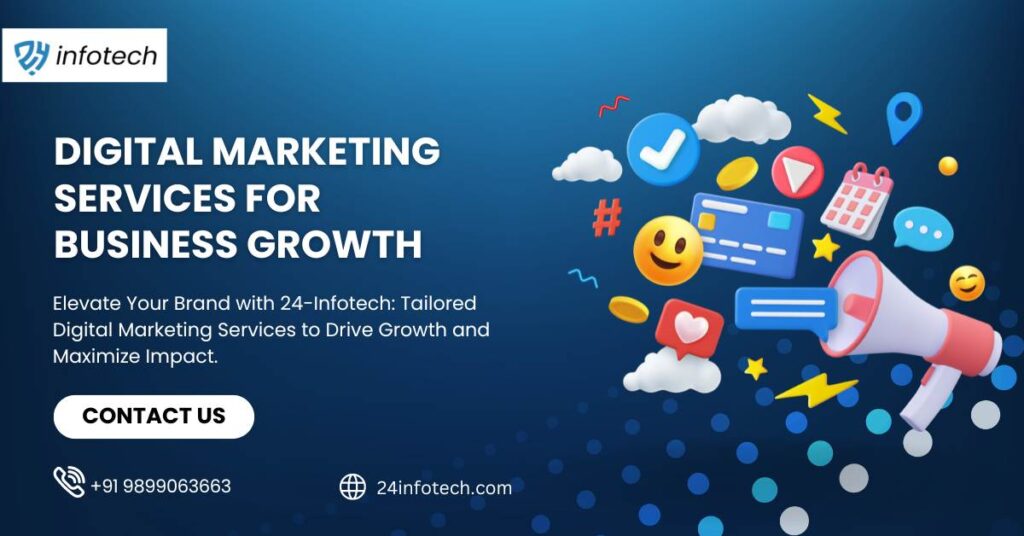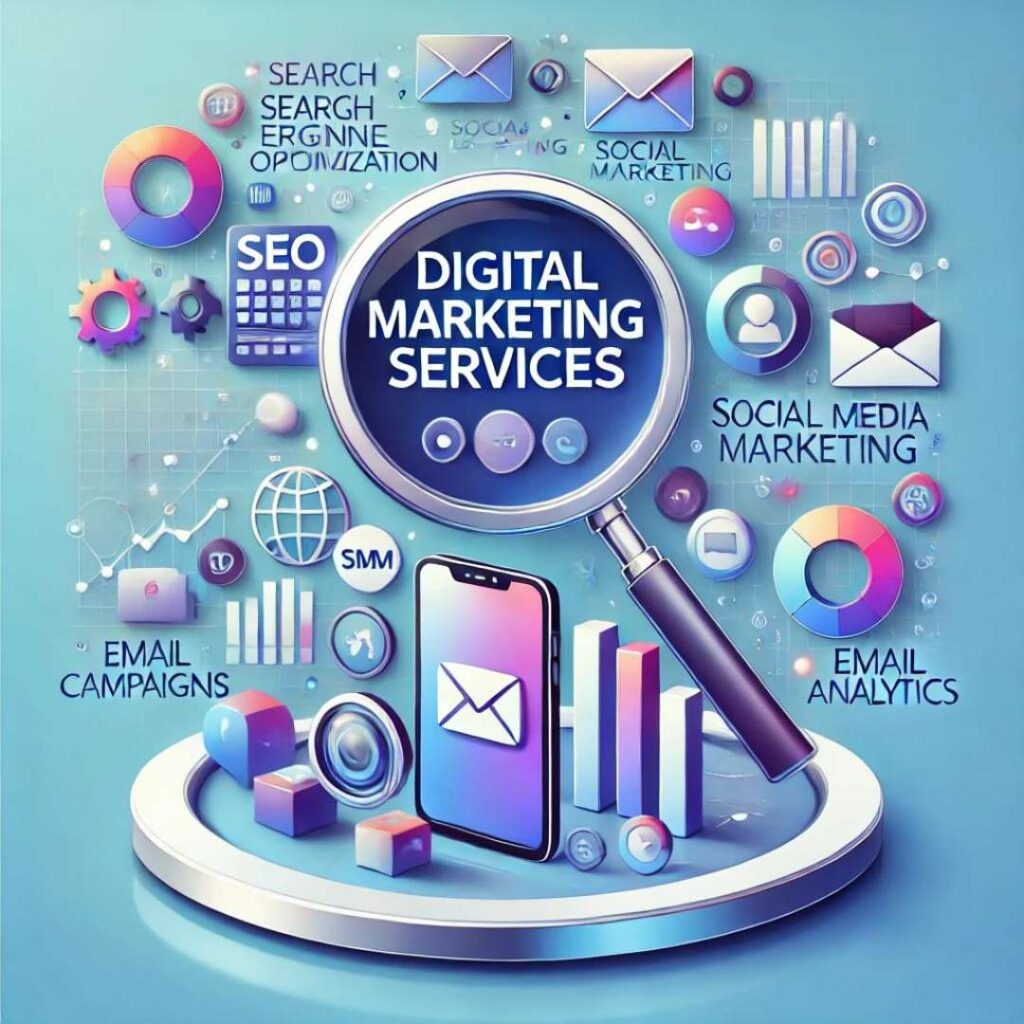
In today’s digital era, businesses face an increasingly competitive landscape, where leveraging online visibility and performance is crucial for growth. Digital marketing services have emerged as indispensable tools to navigate this environment, helping businesses engage with their target audiences more effectively. At 24-Infotech, our goal is to help businesses succeed by offering comprehensive digital marketing solutions, tailored to meet diverse needs and challenges. This article explores the key factors that impact digital marketing services, delving into two central components: Online Marketing and Performance Marketing. We will examine the tradeoffs involved, challenges faced, and the importance of strategic decision-making in optimizing these services for maximum impact.
Digital marketing encompasses a broad range of activities aimed at promoting products or services through online channels. It includes everything from social media marketing and content creation to search engine optimization (SEO), email marketing, and paid advertising. By utilizing these strategies, businesses can target specific demographics, track their performance metrics, and make data-driven adjustments to enhance the effectiveness of their campaigns.
However, the effectiveness of digital marketing depends on choosing the right combination of strategies and platforms that align with a company’s goals. Both online marketing and performance marketing offer unique advantages and challenges, making it important to strike a balance between these approaches.
Online marketing, also known as internet marketing, involves promoting products and services through various online platforms such as social media, websites, blogs, and search engines. It focuses on building brand awareness, engaging customers, and driving organic traffic. Online marketing strategies typically include:

While online marketing is essential for brand building and customer engagement, it is also resource-intensive and time-consuming. SEO, for example, requires continuous optimization efforts and may take months to produce significant results. Additionally, content creation involves consistent output and the need for creativity to stand out in an oversaturated market. Social media marketing, while offering broad reach, demands regular engagement and monitoring to maintain customer interest.
Challenge: Online marketing is heavily reliant on organic traffic, which is influenced by search algorithms and social media trends. Changes in these platforms’ algorithms can significantly impact visibility and reach, making it difficult for businesses to predict and maintain consistent results.
Solution: By conducting regular audits, staying updated with the latest trends, and diversifying content, businesses can better position themselves to adapt to algorithm changes and keep their digital marketing strategies agile.
Performance marketing takes a data-driven, results-oriented approach, where businesses pay for specific outcomes such as clicks, conversions, or sales. This model of digital marketing focuses on measurable goals and ROI, making it a highly accountable form of advertising. Common performance marketing strategies include:
The key benefit of performance marketing lies in its trackable ROI. Businesses can monitor the direct impact of their marketing efforts and allocate resources more effectively. However, performance marketing often requires significant upfront investment, particularly for PPC campaigns where costs can escalate quickly depending on the industry’s competitiveness. Additionally, while PPC ads offer immediate visibility, they do not contribute to long-term brand building like SEO or content marketing.
Challenge: Managing a successful performance marketing campaign requires constant tracking, analysis, and optimization. Without careful management, costs can spiral, and campaigns may yield diminishing returns over time.
Solution: Companies can mitigate risks by regularly analyzing data to adjust campaign parameters and ensure that performance marketing investments are directed toward the most profitable channels. Tools such as Google Analytics and heatmap software can provide valuable insights to refine strategies continually.
Balancing online marketing and performance marketing is essential for a well-rounded digital strategy. While online marketing builds long-term brand loyalty and organic reach, performance marketing generates immediate results and measurable ROI. However, both approaches come with distinct challenges and tradeoffs:
Making informed decisions about digital marketing services can have a profound impact on a business’s success. Whether you are a small business owner or part of a larger corporation, understanding the strengths and weaknesses of different marketing strategies is crucial. At 24-Infotech, we help businesses navigate these complexities by tailoring digital marketing plans that align with their goals, resources, and market conditions.
Key factors to consider when making digital marketing decisions include:
Digital marketing services are a dynamic and essential component of any modern business strategy. From building a strong online presence through content and SEO to driving measurable results through performance marketing, the key lies in understanding the strengths, challenges, and tradeoffs of each approach. By leveraging the expertise of a trusted partner like 24-Infotech, businesses can develop a tailored marketing strategy that balances both long-term brand building and immediate ROI, positioning them for sustained success in an ever-evolving digital landscape.
At 24-Infotech, we understand that each business is unique, and we are dedicated to helping our clients navigate the complexities of digital marketing by providing customized solutions that align with their goals and needs.

24-Infotech is a leading and innovative digital marketing agency that leverages cutting-edge technology with creative ideas to produce results that drive success for your business.